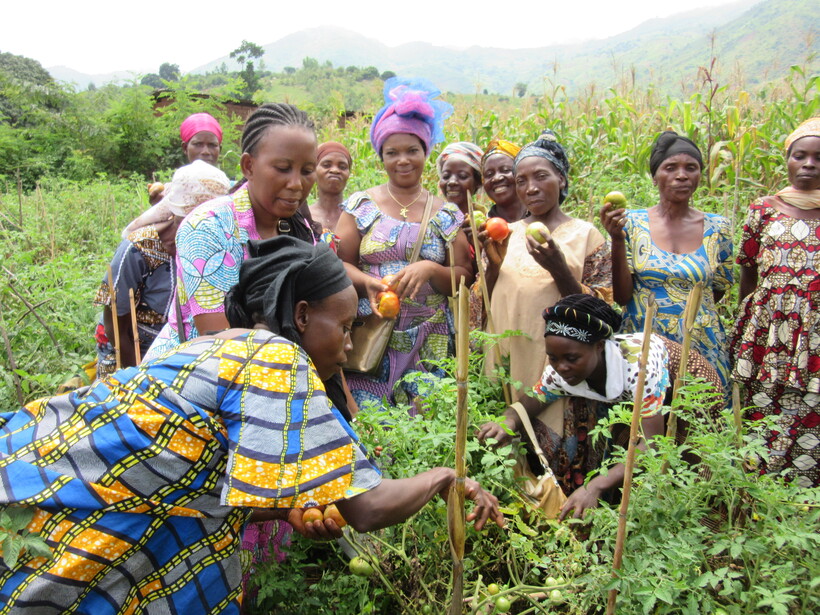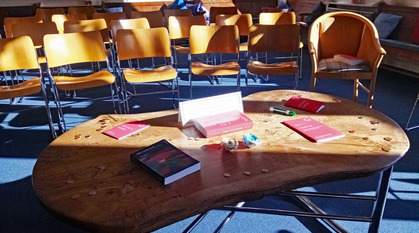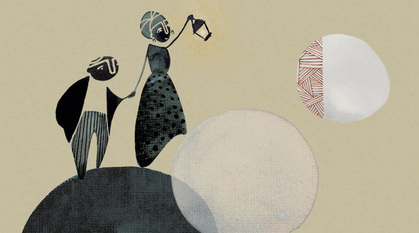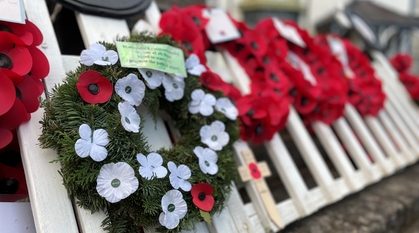QPSW relief grants: making a difference in difficult circumstances
Ann Pfeiffer shares how relief grants are making a difference to mothers in a DR Congo hospital, and how you can suggest a project that needs support.

“My apologies for this late report. It follows a militia attack on the hospital last year which affected staffing and use of the new equipment."
Fortunately, not many of the reports we receive from projects that have been awarded a Quaker Peace & Social Witness (QPSW) relief grant begin in this way. But this opening sentence really brought home to me the reality of the dangers faced by people living in a volatile region, and the bravery of those committed medical professionals on the ground who are trying to provide a service to them.
The project, based in Abeka hospital in the eastern part of the Democratic Republic of Congo, has been receiving support from Quaker Congo Partnership (QCP UK), working with local Quakers and other faith groups, since 2009. In 2018 it was awarded a three-year QPSW Relief grant to provide much-needed equipment for the hospital and training for the medical staff.
Applying for aid
QPSW relief grants have been assisting projects around the world for over 20 years. They have supported everything from rebuilding houses in the Occupied Territories after demolition, to providing schooling for refugee children in Thailand.
We are currently open for applications from April to July 2020 for the next set of grants. All projects applying must be for peacebuilding or for relief of people who are suffering as a result of natural disasters, climate change, war, conflict or social and economic deprivation, but not for immediate crisis relief.
Each project needs to have a Britain Yearly Meeting Quaker link (person or group) and the application should come from the concern of Friends, supported at least through their local meetings. Projects need not be Quaker led, and annual grants will usually be for up to £4,000 per project.
Supporting mothers and newborns
Quaker Congo Partnership UK (QCP UK), who made the application to support the Abeka hospital project, was launched in 2008 as a way for Friends from the UK to offer financial, moral and spiritual support to Congolese Quakers.
One of the first purchases the hospital made with the three-year grant was ultrasound equipment, which staff had been requesting for some time, as a relatively high proportion of women patients the hospital deals with are pregnant.
As soon as staff had been trained in its use, the ultrasound was in use every day, able to give the mothers accurate information on the precise age and health of the foetus and the probable date and likely type of delivery. As a result more women were encouraged to come forward for medical care during their pregnancies.
Their work was made harder by militia activity, and not only because of attacks on the hospital. Towards the end of 2019 many internally displaced people arrived in the area, some needing treatment, but without any means to pay. The 'ambulance' (a long wheelbase Toyota Land Cruiser, partly paid for by an earlier QPSW relief grant) became unusable, and a cheaper alternative – a motorcycle with side-car – had to be bought instead, trusting that it would be able to work in the rough terrain.
Throughout these events the hospital continued to try to function normally, providing antenatal care, over 100 deliveries, and a wide variety of other treatments.
Improving lives
Before QCP UK applied for this current grant for the hospital, the equipment there was so basic that there was no hope of the hospital qualifying for government funding.
Thankfully the new equipment has raised its status and it is now registered with the Congolese Department of Health, so is eligible for funding from the department for staff salaries. However there have been delays in the hospital receiving any money and negotiations are continuing.
A previous grant, which provided piped, clean water meant that basins, toilets and showers could be installed in the hospital for the first time; the current grant for better hospital equipment and training has been markedly raising standards of health care and making valuable contributions to the well-being of the local population in one of the poorest and most unstable regions in the world.
QCP have one more year's funding from the relief grant, which they hoped would further consolidate the hospital's position. It will now be used to help with the coronavirus pandemic which is putting the health services in the region under even more strain. The money, the vision and tenacity of QCP and their local partners, and the dedication of those working on the ground will be even more vital to the inhabitants of Abeka in the months to come.


